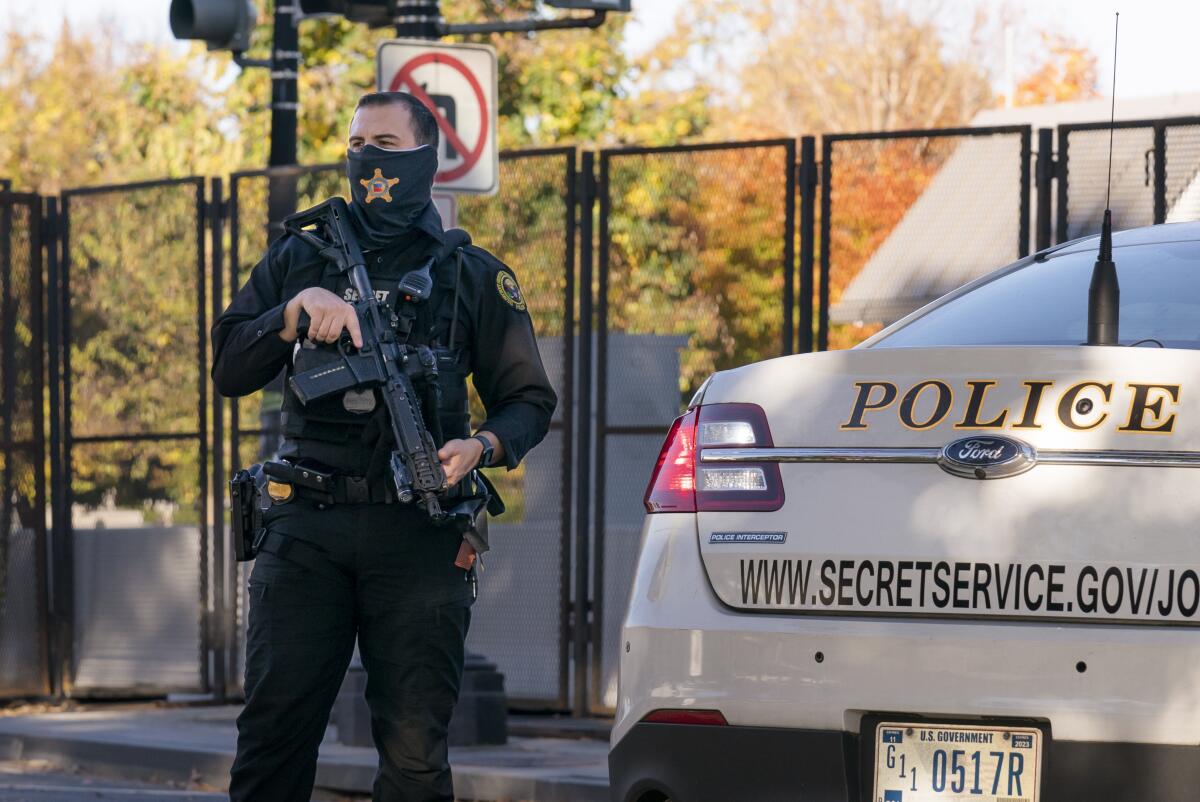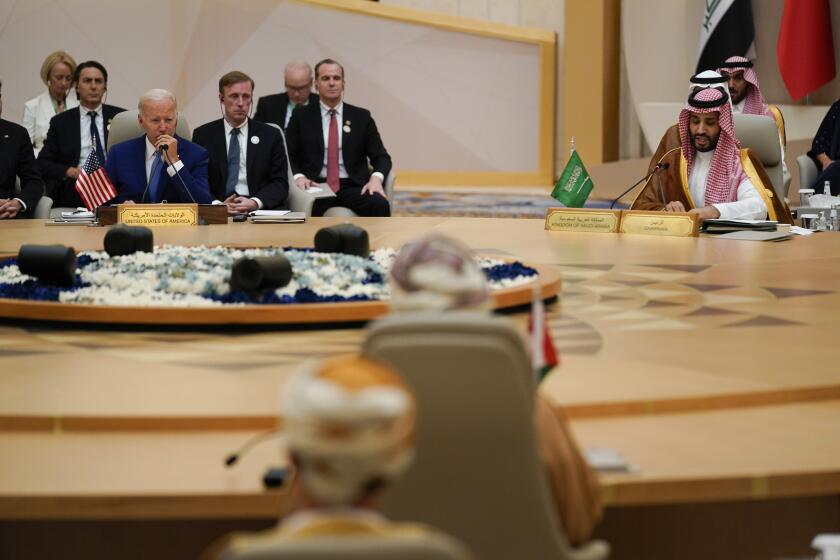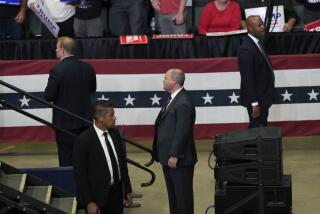Jan. 6 panel subpoenas Secret Service for erased texts

- Share via
WASHINGTON — The House committee investigating the Capitol riot has subpoenaed the Secret Service for text messages that were reportedly deleted by agents around Jan. 6, 2021, as the panel probes
former President Trump’s actions at the time of the deadly siege.
The committee chairman, Rep. Bennie Thompson (D-Miss.), said the panel understands that the messages were “erased.” Thompson outlined an aggressive timeline for production of the documents by Tuesday.
“The USSS erased text messages from January 5 and 6, 2021, as part of a ‘device-replacement program,’” Thompson said in a statement late Friday.
He said the panel “seeks the relevant text messages, as well as any after action reports that have been issued in any and all divisions of the USSS pertaining or relating in any way to the events of January 6, 2021.”
The Secret Service said the committee “has had our full and unwavering cooperation” since beginning its work, and “that does not change,” according to a statement from agency spokesman Anthony Guglielmi. “We plan to continue that cooperation by responding swiftly to the Committee’s subpoena.”
President Biden wraps up his first Middle East trip with warnings on Russia, Iran, but no apologies for meeting with autocrats.
The subpoenas come hours after the nine-member panel received a closed briefing from the watchdog for the Department of Homeland Security, which oversees the Secret Service. Inspector General Joseph Cuffari briefed lawmakers about his finding that the Secret Service deleted texts from around Jan. 6, according to two people familiar with the matter.
That finding raised the startling prospect of lost evidence that could shed further light on Trump’s actions during the insurrection, particularly after earlier testimony about his confrontation with security as he tried to join supporters at the Capitol.
It was a rare step for the committee to issue a subpoena to an executive branch department.
The private briefing came two days after Cuffari’s office sent a letter to leaders of the House and Senate Homeland Security committees stating that Secret Service agents erased messages on Jan. 5 and Jan. 6, 2021, “as part of a device-replacement program.”
The deletion came after the watchdog office requested records from the agents as part of its probe into events surrounding the Jan. 6 attack, the letter said.
The committee had originally sought the electronic records in mid-January and made an official request in March for all communications received or sent from Homeland Security employees between Jan. 5 and Jan. 7, 2021.
Thompson told the Associated Press on Friday that the committee is taking a deeper look at whether records may have been lost.
“There have been some conflicting positions on the matter,” he said.
The briefing was confirmed by two people familiar with the matter who spoke on condition of anonymity to discuss it.
The Secret Service says that proper procedures were followed. “The insinuation that the Secret Service maliciously deleted text messages following a request is false,” Guglielmi said.
He said the Secret Service had started to reset its mobile devices to factory settings in January 2021 “as part of a pre-planned, three-month system migration.” During that process, some data were lost.
The inspector general first requested the electronic communications on Feb. 26, Guglielmi said, “after the migration was well underway.”
The Secret Service said it has provided the inspector general’s office with a substantial number of emails and chat messages that include conversations and details related to Jan. 6. The agency said text messages from the Capitol Police requesting assistance on Jan. 6 were also preserved and provided to the inspector general.
The Senate Homeland Security and Governmental Affairs Committee, which has jurisdiction over the Department of Homeland Security and the Secret Service, is also expecting a briefing from the inspector general about the letter, according to a person familiar with the committee’s discussions who was not authorized to discuss them publicly.
Ohio Sen. Rob Portman, the top Republican on the committee, said in a statement that he was “deeply concerned” by the inspector general’s letter and that it was “essential that the Department be transparent with its inspector general, Congress, and the American public.”
The Jan. 6 committee has taken a renewed interest in the Secret Service following the dramatic testimony of former White House aide Cassidy Hutchinson, who recalled what she heard about Trump’s actions the day of the insurrection.
Hutchinson recalled being told about a confrontation between Trump and his Secret Service detail as he angrily demanded to be driven to the Capitol, where his supporters would later breach the building. She also recalled overhearing Trump telling security officials to remove magnetometers from his rally on the Ellipse, even though some of his supporters were armed.
Some details of that account were quickly disputed by those agents. Robert Engel, the agent who was driving the presidential SUV, and White House aide Anthony Ornato are willing to testify under oath that no agent was assaulted and that Trump never lunged for the steering wheel, a person familiar with the matter told the AP. The person spoke on condition of anonymity.
With evidence still emerging, the Jan. 6 committee has scheduled its next hearing to take place Thursday during prime time. The eighth in a series of hearings will take a deeper look at the three-hour-plus stretch during which Trump failed to act as a mob of supporters stormed the Capitol.
Thursday’s broadcast will be the first hearing on the insurrection to air during prime time since the initial session June 9. That hearing was viewed by 20 million people.
More to Read
Get the L.A. Times Politics newsletter
Deeply reported insights into legislation, politics and policy from Sacramento, Washington and beyond. In your inbox three times per week.
You may occasionally receive promotional content from the Los Angeles Times.











